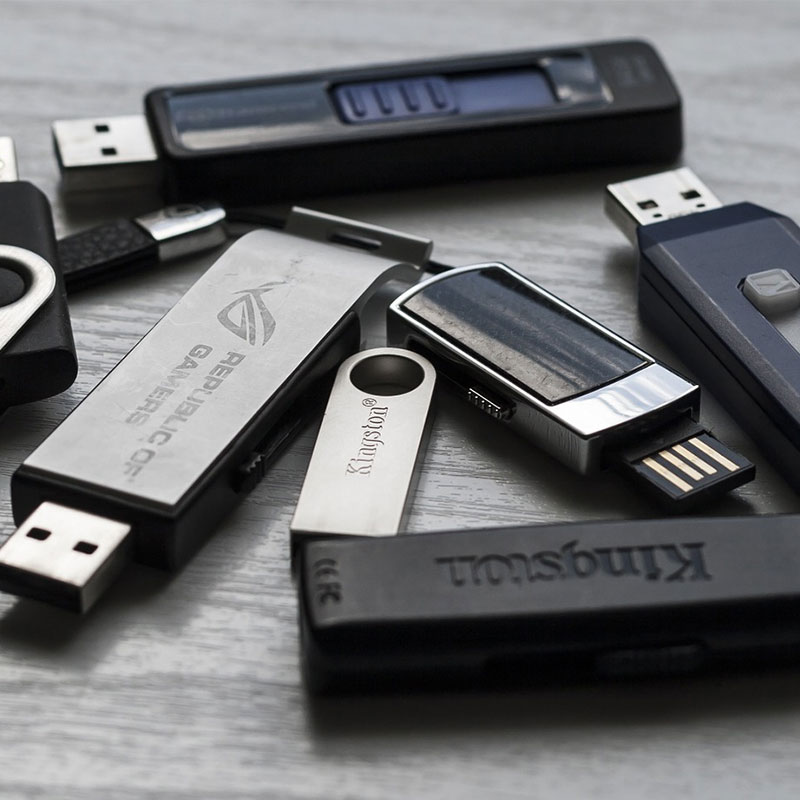USB Flash Drive (or USB stick) is a data storage device that uses flash memory to store and transfer data. It typically connects to a computer or other device via a USB (Universal Serial Bus) port. Here are some characteristics and uses of USB flash drives:
Capacity: USB flash drives come in a range of storage capacities, typically from 2GB to 256GB or more, depending on their manufacturer.
Speed: The speed of a USB flash drive is determined by how quickly it can transfer data. Most USB 2.0 drives are capable of transferring data at a rate of up to 480MB/s, while USB 3.0 drives can transfer data at rates up to 5GB/s.
Compatibility: USB flash drives are widely used and supported on most operating systems and devices, including Windows, Mac, Linux, and Android.
Portability: Due to their small physical size, USB flash drives are highly portable and can easily fit in your pocket or purse.
Uses: USB flash drives are commonly used to store and transfer data such as documents, images, videos, music, and software. They can also be used to boot and install operating systems or diagnostic tools.
Security: Some USB flash drives offer data encryption and password protection to ensure that data remains secure and private.
Durability: USB flash drives are typically durable and resistant to physical damage, but they can be damaged by exposure to extreme heat, moisture, or rough handling.
Overall, USB flash drives offer a convenient and reliable way to store and transfer data, making them a popular choice for everyday use, as well as for business and professional applications.

